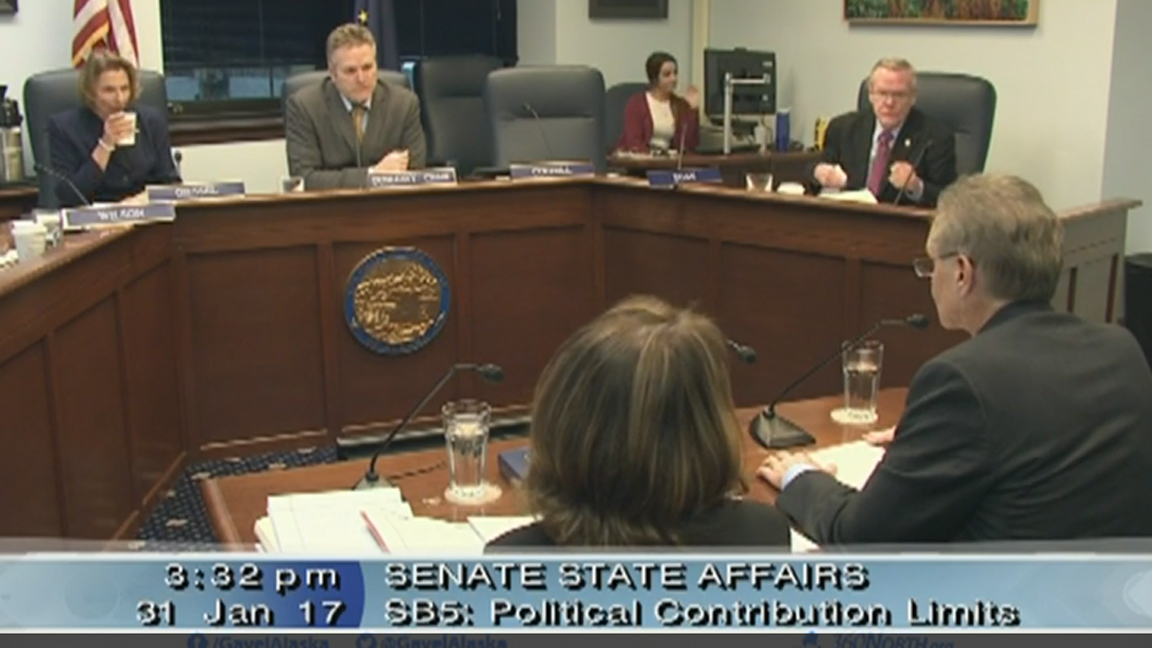A bill by Sen. Kevin Meyer, R-Anchorage, is taking aim at a campaign finance technique used by members of Congress and by a member of the Alaska House’s coalition leadership.
Senate Bill 5 received its first hearing in the Senate State Affairs Committee on Tuesday.
Last year, Rep. Gabrielle LeDoux, R-Anchorage, announced she was forming a political action committee directed by herself. The committee, called Gabby’s Tuesday PAC, accepted campaign donations, and she directed those donations to state candidates she supports.
Those candidates included Rep. Louise Stutes, R-Kodiak, and Rep. Bryce Edgmon, D-Dillingham.
Since her action, Rep. David Eastman, R-Wasilla, has created his own group, the Alaska Conservative Leadership PAC. Rep. Paul Seaton, R-Homer, has created the Sustain Alaska Fund.
Eastman’s group, primarily funded by Brad Keithley, sent money to oppose Ballot Measure 1 in the general election and contributed minor sums to William Weatherby and Aaron Lojewski.
Seaton’s group does not appear to have spent or accepted money, according to the Alaska Public Offices Commission records.
In Alaska, political action committees are subject to fewer regulations than individual candidates are. In particular, a committee can accept donations during the legislative session — a legislator cannot.
Thus, a PAC led by a legislator could theoretically create a pay-for-play situation. Someone could offer a donation in exchange for an action by the legislator during the session.
Speaking Tuesday, Meyer said that ability, even if it isn’t used, creates a bad impression.
“Even the appearance of this type of influence is unacceptable,” he said.
Meyer’s bill would prohibit PACs from accepting donations during the legislative session, putting them under the same rules as legislators.
“This bill is trying to mirror the current law that we have for us,” he said.
Meyer said he’d prefer to put tougher restrictions into place, but he knows that there are those in the Senate who prefer fewer restrictions.
“It’s come up before that we should just allow contributions from anybody and everybody as long as they’re fully disclosed,” Meyer said, which is why his bill represents a compromise. “We’re just trying to tighten it up so that it mirrors our current policy.”
The bill was set aside for additional hearings, which have not yet been scheduled.
The Legislature now has ethics bills in each body that would predominantly affect the members of the opposite body. No senator has created a PAC that would be affected by Meyer’s bill, according to records kept by the Alaska Public Offices Commission.
In the House, a bill pushed by Rep. Jason Grenn, I-Anchorage, would strengthen the rules preventing conflicts of interest. House Bill 44, Grenn’s measure, is seen as principally affecting Meyer and Sen. Peter Micciche, R-Soldotna, who are employed by oil companies.
• Contact Empire reporter James Brooks at james.k.brooks@juneauempire.com or 419-7732.

